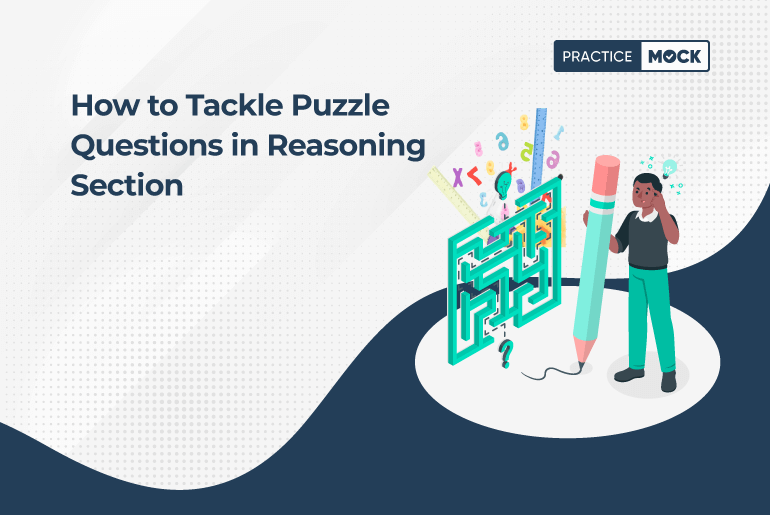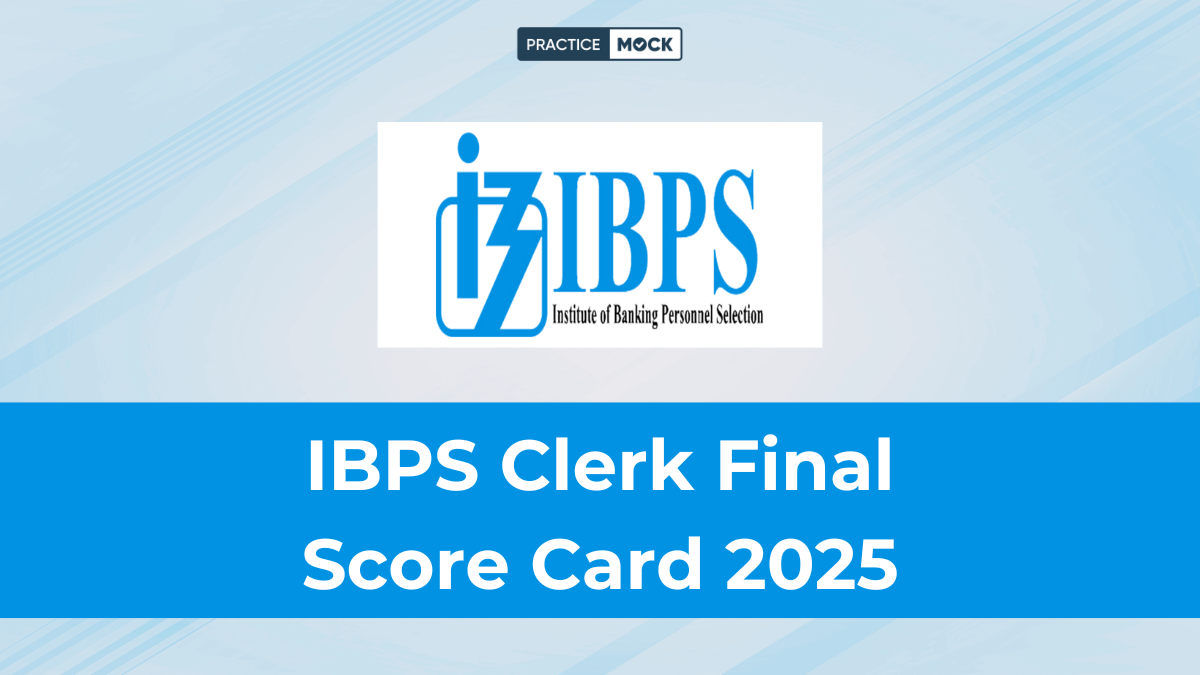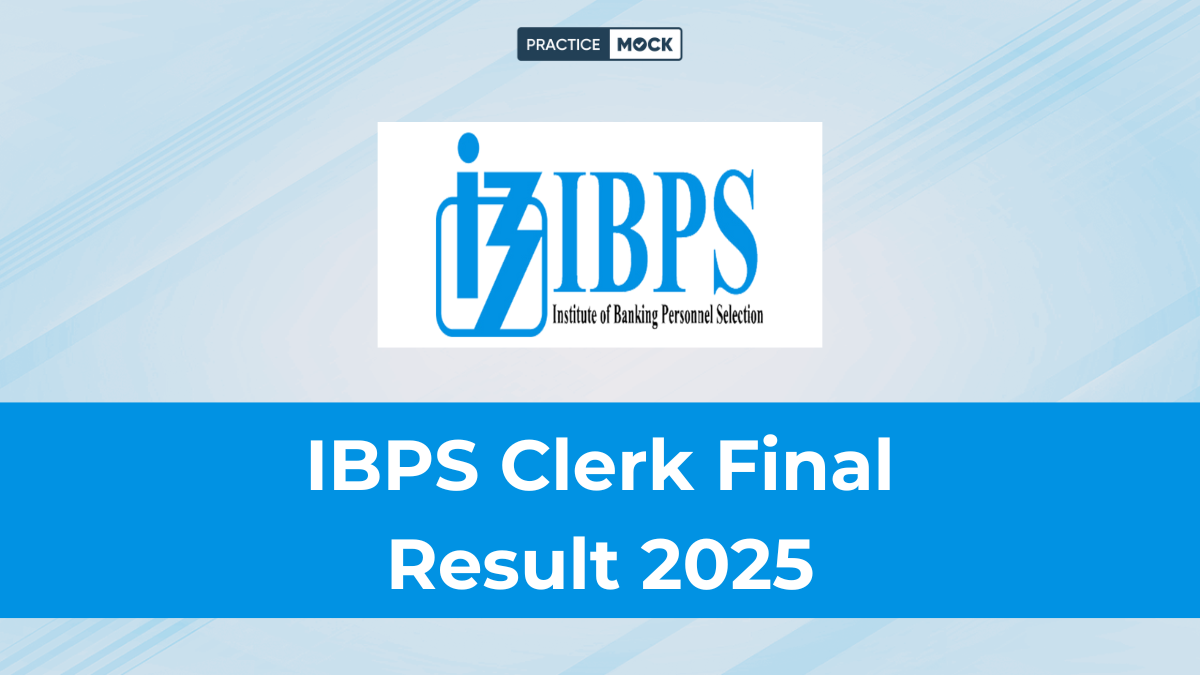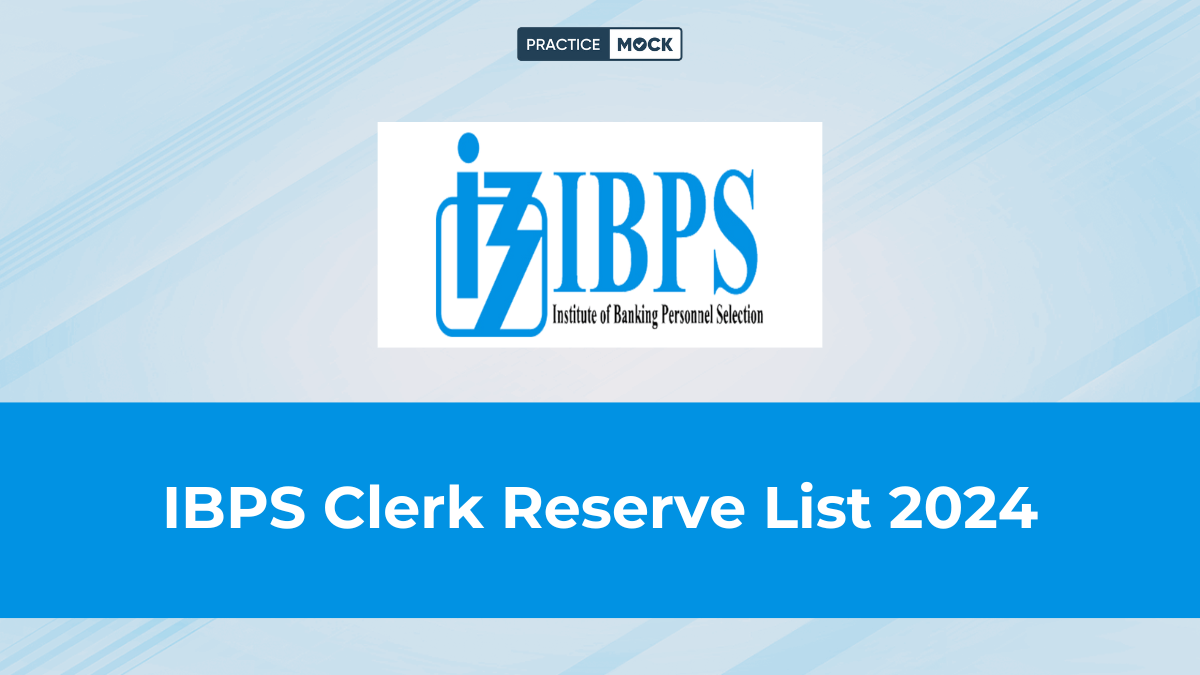How to Tackle Puzzle Questions in Reasoning Section


Puzzle questions are an integral part of the reasoning section in various competitive exams, aptitude tests, and job interviews. They not only test your logical thinking and problem-solving skills but also assess your ability to manage complex information and arrive at accurate conclusions. While these questions may seem daunting at first, with the right strategies and mindset, you can confidently tackle puzzle questions and improve your overall performance. In this blog, we’ll explore effective techniques to approach and conquer puzzle questions in the reasoning section.
Get IBPS Clerk 2023 Free Mock Test & Analyze your performance
- Understand the Puzzle Type:
Puzzles come in various types, such as arrangement puzzles, seating arrangement puzzles, mathematical puzzles, and more. It’s crucial to understand the specific puzzle type you’re dealing with before attempting to solve it. Read the instructions and the given data carefully to grasp the scenario and the relationships between different elements. - Organize the Information:
Once you understand the puzzle, start organizing the information given. Create a visual representation, such as a table, chart, or diagram, to help you keep track of the relationships and possibilities. This step is crucial to avoid confusion and make it easier to spot patterns. - Identify Constraints and Clues:
Puzzle questions often provide clues and constraints that can guide you toward the correct solution. These could include statements like “A is next to B” or “C cannot be in the first position.” Identify and note down these constraints as they will help you eliminate certain possibilities and narrow down your options. - Use the Process of Elimination:
Eliminating possibilities based on the constraints and clues you’ve identified is a powerful strategy. Gradually rule out options that violate the given conditions. This will significantly reduce the number of possibilities and bring you closer to the correct answer.
Get IBPS Clerk 2023 Free Mock Test & Analyze your performance
- Start with the Easiest Clues:
Begin solving the puzzle by tackling the simplest clues or constraints first. These are often the most straightforward and can help you establish a foundation for solving the more complex aspects of the puzzle. - Make Inferences:
As you work through the puzzle, make inferences based on the information you’ve gathered. For example, if you know that A is next to B and B is next to C, you can infer that A is also next to C. Making logical deductions will help you connect the dots and uncover hidden relationships. - Trial and Error:
In some cases, you might need to use trial and error to test different possibilities. Start with a hypothesis and see if it leads to a valid solution. If it doesn’t, backtrack and try another approach. While this method requires patience, it can be effective, especially when other strategies have been exhausted. - Time Management:
Allocate a specific amount of time for each puzzle question. If you find yourself stuck, it’s better to move on and come back to it later if time allows. Striking a balance between spending time on a challenging question and ensuring you have time for the rest of the section is crucial. - Practice Regularly:
Like any skill, mastering puzzle questions requires practice. Solve a variety of puzzle types regularly to improve your problem-solving skills and become more comfortable with different scenarios. This will also help you develop a repertoire of strategies to apply in various situations.
Get IBPS Clerk 2023 Free Mock Test & Analyze your performance
Conclusion:
Tackling puzzle questions in the reasoning section is a rewarding challenge that can significantly enhance your cognitive abilities and logical thinking skills. By understanding the puzzle type, organizing information, identifying constraints, and applying effective strategies, you can approach these questions with confidence and achieve success in your exams and assessments. Remember, practice makes perfect, so keep honing your puzzle-solving skills, and you’ll be well-prepared to conquer any reasoning puzzle that comes your way.
Recent Posts
Is RBI Grade A a Gazetted Post?
Many aspirants preparing for the RBI Grade A exam want to know whether the RBI…
Union Bank of India Salary 2025, Check In-hand Salary, Salary Slip, and Job Profile
Discover Union Bank of India Salary 2025 with all the important details like In-hand Salary,…
RBI Grade A or B, Which Exam is Coming First?
Plesae write 22-word, 5 compelling meta descriptions for a WordPress blog having the title: RBI…
SBI PO Books, Check Best Books for SBI PO Preparation
Get a complete list of the best SBI PO 2025 Books & Mock Tests for…
How to Maximize your Score in RRB Clerk 2025 Exam
In the following article, we have discussed how you can maximize your score in the…
IBPS RRB PO Reasoning Topic wise Weightage, Check Prelims & Mains Weightage
In this article we are providing the IBPS RRB PO Reasoning Topic wise Weightage. Candidates…



